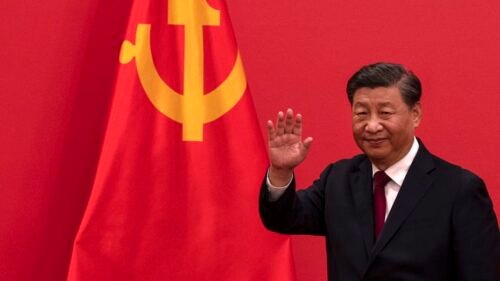#USChinaRelations #Diplomacy #JakeSullivan #WangYi #GlobalSummits #InternationalPolitics #CloakAndDagger #BilateralTalks
In a world increasingly defined by geopolitical tensions and the strategic rivalry between superpowers, a significant development has unfolded, casting a new light on the intricate dance of diplomacy between the United States and China. Recent revelations have exposed a clandestine communication channel between top officials of both countries, specifically Jake Sullivan, the U.S. National Security Advisor, and Wang Yi, a leading diplomat in the Chinese government. These revelations come at a time when public discourse has often focused on the confrontations and disagreements between these two global giants, from trade disputes to military tensions in the South China Sea.
This covert diplomacy channel, characterized by its secretive nature, saw Sullivan and Wang engaging in what could only be described as ‘cloak and dagger’ summits. These meetings, taking place in various locations around the globe, were carefully orchestrated to avoid the limelight, a tactic that speaks volumes about the delicate matters at hand. These discussions aimed at stabilizing relations between the United States and China, suggesting both nations recognize the importance of finding common ground amid their complexities. The existence of these talks reveals a layer of pragmatism that underlines the relationship between the two countries, highlighting efforts towards cooperation even as they navigate their rivalry.
The implications of these secret summits are far-reaching. For one, they underscore the acknowledgment by both Washington and Beijing of the critical need to maintain a functional, if not amicable, relationship. This realization is paramount, considering the potential global ramifications of a complete breakdown in communication between these two nuclear-armed states. Moreover, the talks are indicative of a mutual understanding that, despite their public posturing, working in the shadows to stabilize ties could lead to practical outcomes beneficial for both parties, and by extension, global stability.
Analyzing these developments, it becomes clear that the international political landscape is more nuanced than it often appears. The existence of backchannel communications like those between Sullivan and Wang suggests that even in times of heightened tensions, the machinery of diplomacy continues to operate—albeit quietly. As the world watches the evolving dynamics between the United States and China, these secret negotiations serve as a reminder of the complexity inherent in international relations. While the future of US-China relations remains uncertain, these clandestine meetings may well lay the groundwork for a more stable bilateral relationship, offering a glimmer of hope in an otherwise tense geopolitical climate.







Comments are closed.